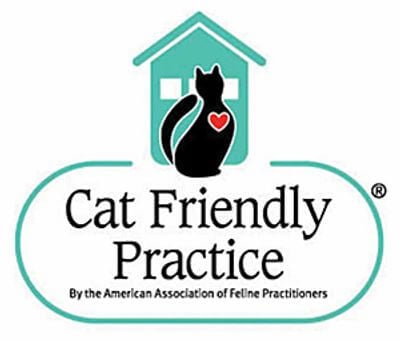What are the right and wrong ways to pick up my kitten?
Well, as you can see, Olivia likes to be held like this. I know she's not a kitten, but she thinks she is. It's not great to grab them by their scruff and just pick them up with no support. You pick them up with one hand under the chest and the other under the belly.
Dr. Catherine MacLean
Sugar River Animal Hospital
How can I tell if my kitten is happy and healthy?
Kittens usually like to play and sleep. They'll also be eating and drinking, and using their litter box appropriately. If you see a decrease in appetite or they just don't seem like their active self, that would be concerning.
How should I feed my kitten?
It's best to try to measure out the foods. Many cats can't regulate themselves as they get older and get overweight. Speak with your veterinarian, and they can help you figure out how much cat food you should feed your cat or kitten.
What are some products I might need for my kitten?
You'll need toys, scratching posts—both horizontal and vertical. You'll also need a litter box, food and water, and a safe place for them to go to when they need some time to themselves.
How soon should I bring my new kitten to see a veterinarian?
You're going to bring them in within a few days of you getting your pet so we can get a checkup and make sure everything looks okay. If you have another cat already, we can discuss how to introduce them properly and make sure they don't have any diseases that they might pass on to your other pets in your home.
How can I get the most out of my first vet visit with my new kitten?
Come with your questions; we love them. Make sure you know what you're feeding your kitten. Whatever you can think of to ask, just ask us because we love to engage with you and help you on your journey with your new pet.
What will a veterinarian look for during an initial kitten care visit?
We do a full physical exam on all of our visits, and that includes looking at the eyes, looking inside the ears, checking teeth and gums, listening to the heart and lungs, and feeling the abdomen to see how the organs are. We might also ask you to bring in a fecal sample to check for intestinal parasites.
What are some early signs and symptoms of health issues in your kitten?
A decrease in appetite is a big one to look out for in kittens. If they're misusing their litter box or stop using the litter box, something could be wrong. Also, kittens sometimes get upper respiratory symptoms, so if you notice sneezing or watery eyes, that's a good reason to call us.
Why is it important to avoid self-diagnosing possible kitten health problems?
There are a lot of things that Dr. Google will tell you that aren't necessarily true because, don't forget, anyone with a keyboard can write their opinion. And kittens are like human babies so that they can go south really quickly. It's vital if they're not feeling well that you at least call your veterinarian so we can discuss the next best step.
When should my kitten get vaccinations?
We usually start vaccines around eight weeks of age. Like in human babies, there's a series of vaccines - generally around eight, 12, and 16 weeks - and then again at one year. And then annually, we see your kitten or cat for various things.
What do I need to know about kitten behavior?
Know that kittens can be wild, and they like to be their most wild at night while you're trying to sleep. Try to engage them in play before bedtime to try to tire them out. And don't allow them to nip at you and claw you. Redirect them to appropriate toys.
If you still have other questions and you'd like to reach out to us, you can call us directly at (603) 865-5532.


